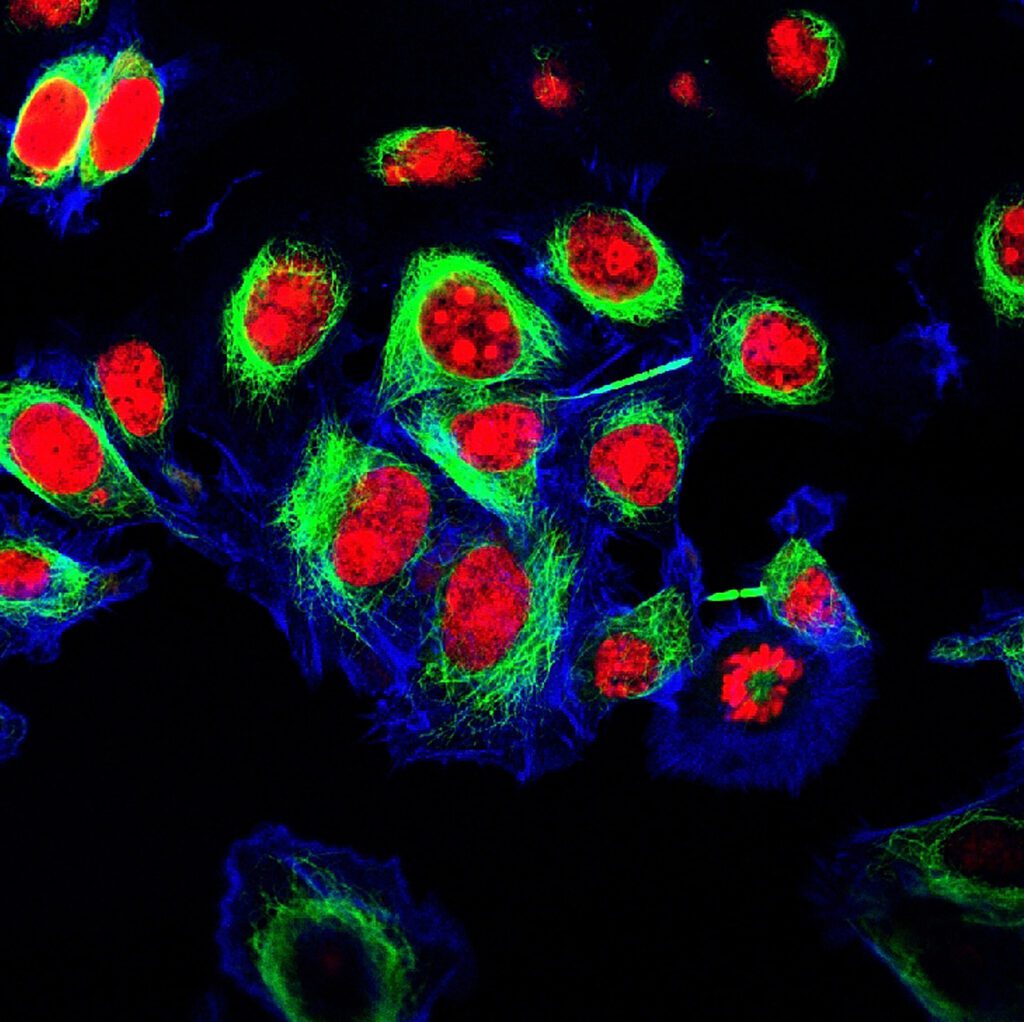September 18, 2023
The Immortal Legacy of Henrietta Lacks
Out of all the medical discoveries of the last 70 years, almost none of them would have been possible without a single cell line known simply as “HeLa cells.”

Out of all the medical discoveries of the last 70 years, almost none of them would have been possible without a single cell line known simply as “HeLa cells.”
While the accomplishments of utilizing these cells are nothing short of incredible, their production and use are mired in controversy and have sparked an ongoing debate that has lasted for decades. So why exactly are HeLa cells important, and what could possibly make the contents of a petri dish controversial?
The Origin of HeLa Cells
Until the first HeLa cells were cultured, cells grown for laboratory studies survived only a few days at most, making continuing cell line research and long-term studies nearly impossible.
HeLa cells began as a sample of cervical cancer that was taken from a patient in 1951. Unlike all other cells at the time, these cells not only survived but also continued to replicate, leading them to be labeled as the first-ever “immortal” cell line.
Researchers quickly saw the benefit of the use of these cells, and before long, they were being sold and studied around the world.
Jonas Salk first used them to develop the polio vaccine, and they were most recently used in the development of the COVID-19 vaccine. HeLa cells were involved in the mapping of the human genome, treatments for HIV and HPV, the understanding and treatment of almost every type of cancer and have even been sent into space! Source: Impact of HeLa Cells on Biomedical Research – Office of Science Policy (nih.gov)
The cells have been cited in more than 110,000 scientific publications, and there are over 17,000 patents involving HeLa cells. Source: HeLa Cells – Office of Science Policy (nih.gov)
The current estimate is that 50 million tons of cells have been created and used since their initial biopsy. Source: UN honours Henrietta Lacks, whose cells transformed medical research worldwide | UN News
The Controversy With HeLa Cells
The controversy surrounding HeLa cells arises when examining how they became involved in research in the first place. Henrietta Lacks was a patient at Johns Hopkins Hospital in 1951 due to her cervical cancer diagnosis, and her cells were taken not once but twice without her knowledge or consent.
Her cells were given to a cancer researcher and were stripped of her full name, leaving only her initials behind. Henrietta Lacks was largely lost to time, but “HeLa” cells continued to live on.
While the use of HeLa cells has likely contributed to the saving of millions of lives, they also created billions of dollars in revenue for the companies that sell them.
Neither Henrietta Lacks nor her family were ever financially compensated for the cells. In fact, the Lacks family remained unaware of their existence until 1973.
Other than the issue of monetary compensation, the use of HeLa cells also brings up the topics of informed consent, medical ethics and racism in the medical field.
Henrietta never gave her permission for the cells to be collected and used for research; her family has protested their use, yet they continue to be cultured to this day.
On the 70th anniversary of Henrietta’s death, the Lacks family filed a federal lawsuit against Thermo Fisher Scientific, claiming “unjust enrichment and nonconsensual use” of her cells
On what would have been Henrietta’s 103rd birthday (August 1, 2023), the Lacks family finally reached an undisclosed settlement with Thermo Fisher and filed a new suit against a different company one week later. Source: Estate of Henrietta Lacks sues biotechnical company for nonconsensual use of her cells | CNN
Medical consent and ethics have grown and evolved largely because of the discussion of Henrietta Lacks and her immortal cells. Today, HeLa cells remain both a groundbreaking innovation and a dark stain on the pages of medical history, and Henrietta Lacks’ living legacy deserves recognition.
So, the next time you receive a vaccine or are reading over informed consent paperwork in your doctor’s office, remember the name Henrietta Lacks and her unintentional but incredible contributions to the medical field.